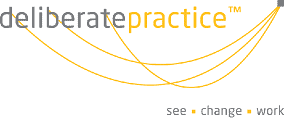Evolving work practices can equal professional advancement for those willing to evaluate emerging opportunities, and embrace change.
At deliberatepractice we want to ensure you make the most of present times. Candidates have increasing access to career possibilities as we swing out of the pandemic and push through the boundaries of traditional “full” employment. Securing an human resources position in alignment with short and longer term career goals will drive continued career satisfaction.
As a specialised boutique Human Resources Recruitment firm, we’ve facilitated many meaningful career conversations with employees and candidates. The present employment landscape means it is increasingly more difficult for organisations to attract outstanding talent, and for candidates, now is an opportune time to undertake career planning and make moreinformed choices that enable fantastic career growth.
deliberatepractice Success Profiler
An effective way to assess career opportunities is essential. Our success-profiling model encapsulates the extensive experience of the deliberatepractice team, identifying seven lead facets we know are critical for both individual and organisational success—making the success profiler perfect for numerous HR processes, including career planning, assessment, and recruitment.
The facets are designed to interact, with trade-offs between them a fundamental aspect of the process. This way candidates easily determine whether a career transition offers a viable framework for long-term career development, while organisations use the success profiler to clearly identify an individual’s suitability. The seven facets are as follows:
Technical Skills
Basic qualifications are a natural starting point when considering employment. If you have the necessary experience and/or education, the importance of fulfilling other requirements is dependent on both an organisation’s priorities, and the alternate attributes and competencies you bring to the table, highlighted during the interview process.
Keep in mind while you may possess technical human resource skills, the satisfaction/ dissatisfaction you experience completing these daily tasks is of relevance when evaluating a new role. If focused on career development and open to further specialised training, clarify this with a possible employer, or self-initiate avenues to further your skillset.
Discipline Awareness
Industry experience is often a standard request. Employers want to know you have not just the knowledge required for a HR role, but a proven ability to utilise this know-how in the workplace. In terms of HR disciplines, be aware of your strengths and weaknesses. Keep in mind, Human Resources is an evolving field, with specialist roles continually emerging.
Knowing that experience is part of your personal brand, define your preferences within this context. Whether inspired by recruitment, fascinated by evaluation and training, or invested in strategies that amplify workplace harmony, exploring preferred focal points can help pinpoint satisfying roles and potentially lead to a more satisfying, sustained career.
Attribute Based Competencies
The way you think and respond will have an impact on career competence and as a result, overall job satisfaction. A certain level of self-awareness is required to evaluate attribute based competencies, relative to personality and cognitive make up. Identifying these competencies allows both you and employers to recognise a great fit.
For example, a high level of natural adaptability may render you better suited to a role with evolving tasks. An optimistic person who excels at active listening and engagement could make you an invaluable asset during tense workplace scenarios requiring de-escalation. The right role is one suited to you personally, thereby delivering job satisfaction.
Behavioural Competencies
Experience based capabilities are powerful factors in your favour. Behavioural competencies such as superior organisational skills and initiative are always valued. Perhaps you excel in a leadership capacity, or possess a wide array of digital abilities. Your performance history showcases practical ways previous employees have benefited from these attributes.
Whatever your competencies, be realistic about how they can not only help you attain the job you want, but also achieve short and long-term career goals. If a new role doesn’t allow you to effectively utilise knowledge and experience, or help you move forward on your career path, there is a risk the job won’t be fulfilling, minimising likelihood of engagement and retention.
Motivational Fit
While long-term career planning impacts choice of role, remember to also identify day-to-day motivational triggers. These are aspects of the workplace experience that contribute to quality performance, and job satisfaction. Extrinsic and intrinsic motivators of any employment opportunity need to be evaluated before a decision is made.
Extrinsic motivators include pay rates and incentivising practices. Intrinsic motivation addresses more complex psychological motivations. Will a new job passionately engage you by offering workdays that feel meaningful? Underestimating the relevance of extrinsic or intrinsic motivators, for example only considering income, can lead to an ill-fitting role.
Career Fit
For many, motivators that inspire long-term career satisfaction will be deciding factors when it comes to a change of roles. A role that suits your personality, aptitude, and experience, while providing intrinsic motivation and facilitating future goals, is ideal. Being comfortable in the short term is important, but long term aspirations have to be addressed.
Define your career plan, identify long-term motivators, and make sure these align with situational components of a potential position. For example, an uncooperative environment discouraging innovation won’t satisfy a forward-thinking personality. Likewise, an organisational structure without avenues for advancement may stifle the ambitious.
Culture Fit
Without a suitable culture fit, achieving long-term job satisfaction is rare. Compatibility matters in your professional life. Take the time to assess the values based factors of an organisation, and make sure they complement your belief systems. Business culture, while somewhat difficult to define, can have a huge impact on workplace experience.
Would you prefer a workplace that understands family priorities and is open to flexible arrangements? Do you prefer a collaborative environment? Is the level of charity involvement a deciding factor? Would high organisational commitment to positive community impact be more attractive? Find a business whose culture aligns with your values.
We’re here to facilitate success—for everyone involved
Whatever the sector, deliberatepractice can assist you, or your organisation, in ensuring you initiate the best career and hiring decisions. Contact our Melbourne-based team on 03 9008 5840 if wanting to discuss any aspect of contemporary human resources, including informed ways to enable recruitment solutions and navigate a potentially overwhelming job market.



